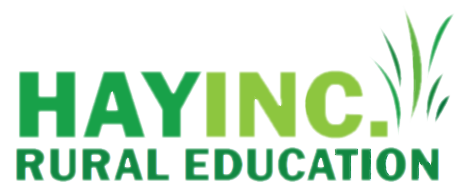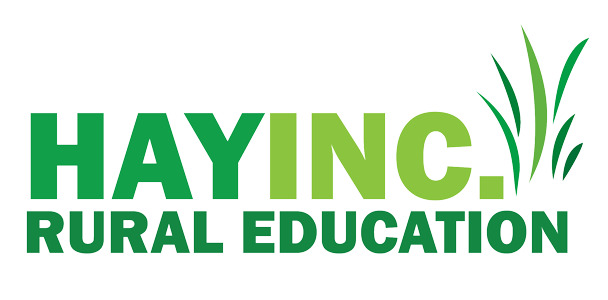1. PURPOSE: Social Media is an accepted part of an organisations overall communications
strategy as it plays a vital role in connecting organisations across geographic boundaries and
spreading an organisations brand and messages. This policy seeks to empower Employees,
Committee, Students and Alumni to participate confidently in social media conversations
whilst protecting the interests of Hay Inc. All are required to read, understand and adhere to
this policy. This policy is informed by the Hay Inc Code of Conduct
2. SCOPE: This policy informs all of their responsibilities when using social media. The policy
applies to Employees, Committee, Students and Alumni, and persons engaged under a
contract with Hay Inc. Hay Inc embraces the use of social media as a way of connecting and
engaging with audiences, promoting Hay Inc’s activities and sharing other relevant
information online. Hay Inc recognises that many use social media to communicate,
participate and contribute to online communities.
3. OBJECTIVE: This policy seeks to empower Employees, Committee, Students and Alumni to
participate confidently in social media conversations whilst protecting the interests of Hay
Inc. All are expected to exercise good judgment about their social media activity and
consider the context and implications of their actions. This policy aims to provide clarity to
all about how to conduct themselves in their social media activity.
4. DEFINITIONS: Hay Incorporated Contractor A service provider that fits the definition of
contractor in accordance with the Australian Taxation Office. Employee All Employees,
directors and Contractors including an apprentice or trainee, work experience student or a
volunteer, a visitor, Committee, Students and Alumni of Hay Incorporated
5. SOCIAL MEDIA: Social media broadly refers to online platforms which enable users to share
content online and interact with others. Examples of social media platforms include but are
not limited to: • social networking platforms, such as Facebook, Twitter, LinkedIn • videoand
photo-sharing platforms, such as Instagram, Snapchat, Pinterest, YouTube, Periscope,
Vimeo, Vine, Flickr, Tiktok • blogs, including corporate blogs, personal blogs, and those
hosted by media outlets which include a comments or ‘your say’ feature • public wikis and
online collaborations, such as Wikipedia • forums, discussion boards and groups, such as
Google+ and Whirlpool, as well as online review sites such as TripAdvisor, Yelp and
Booking.com • instant messaging, such as Facebook Messenger, WhatsApp, Snapchat, and
including SMS • geo-spatial tagging, such as Foursquare, Geocaching, and ‘check in’ features
on social media platforms.
6. PRINCIPLES OF USE: These principles apply to all Hay Inc Employees, Committee, Students
and Alumni in their use of social media. The following principles apply to all when authoring
the Association’s official accounts. • must read, understand and adhere to this policy and its
principles and the Hay Inc Code of Conduct • must act in a manner which is apolitical,
impartial and professional • must avoid any statement which may bring Hay Inc into
disrepute • must protect the privacy and personal information of Hay Inc members,
Employees and others • must respect and protect the relationships established by Hay Inc
with external stakeholders and partners • must defer to the Chief Executive Officer in
relation to crisis communications • should acknowledge content sources and must ensure
they have appropriate permission to use the material further, when authoring official Hay
Inc social media accounts: • must not disclose sensitive or official information unless
authorised to do so • must not commit Hay Inc to any action or initiative without prior
approval from their manager, including committing funding to social media advertising and
promoted content • must not share their access or password with others, including Hay Inc
colleagues • must not post or create content outside the scope of their project, including
moderating or responding to comments unrelated to their project • must not comment on
behalf of other sections, projects or individuals within Hay Inc • must not comment in a way
that adversely affects the reputation of parties with whom Hay Inc is formally partnered or
has a significant relationship with. Employees should contact the Chief Executive Officer for
guidance and clarification if they are unsure about their responsibilities or obligations
relating to official social media activity. The following principles apply to all Hay Inc
Employees in their personal social media use: All • must read, understand and adhere to
these principles, and the Hay Inc Code of Conduct • must avoid any statement which may
bring Hay Inc into disrepute • must assume that they can be identified as a Hay Inc
Employees, Committee, Students and Alumni using pseudonyms, posting anonymously or
from private accounts, and that their activity can be made public and therefore shared •
must be respectful of other Hay Inc and their work • must protect the privacy and personal
information of Hay Inc Employees, Committee, Students and Alumni • must not make
comments which could be perceived to be made on behalf of Hay Inc rather than an
expression of a personal view • must not make comments which could be seen as
compromising their capacity to fulfil their duties at Hay Inc • must not make comments that
are strongly critical of Hay Inc’s core business, policies and Employees, Committee, Students
and Alumni that it could seriously disrupt the workplace • must not disclose sensitive or
official information relating to Hay Inc that is not already in the public domain • should
consider the implications if their comments are taken out of context, and the potential
implications if this occurs
7. CONSEQUENCES OF IMPROPER USE OF SOCIAL MEDIA: Employees, Committee, Students
and Alumni are expected to comply with this policy. Where instances of improper social
media use occur, they will be investigated in a confidential manner and if proven, the person
responsible will be disciplined.
8. POLICY REVIEW: This policy will be reviewed as required


